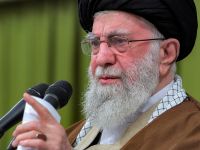Global economic growth will slow down from three percent in 2018 to 2.9 percent in 2019 due to weakened international trade, manufacturing, and market pressures, the World Bank said Tuesday.
Growth in advanced economies is forecast to drop to two percent this year while the growth rate in the Middle East and North Africa (MENA) region is to rise to 1.9 percent, according to a WB statement.
Emerging market and developing economies are faced with slowed external demand, growing borrowing costs, and policy uncertainties. Their growth is anticipated to "hold steady at a weaker-than-expected 4.2 percent this year," said the statement.
"At the beginning of 2018 the global economy was firing on all cylinders, but it lost speed during the year and the ride could get even bumpier in the year ahead", said World Bank Chief Executive Officer Kristalina Georgieva.
"As economic and financial headwinds intensify for emerging and developing countries, the world's progress in reducing extreme poverty could be jeopardized. To keep the momentum, countries need to invest in people, foster inclusive growth, and build resilient societies." Commodity exporters have seen stagnation and importers' activity has decelerated.
Growth in advanced economies is forecast to drop to two percent this year while the growth rate in the Middle East and North Africa (MENA) region is to rise to 1.9 percent, according to a WB statement.
Emerging market and developing economies are faced with slowed external demand, growing borrowing costs, and policy uncertainties. Their growth is anticipated to "hold steady at a weaker-than-expected 4.2 percent this year," said the statement.
"At the beginning of 2018 the global economy was firing on all cylinders, but it lost speed during the year and the ride could get even bumpier in the year ahead", said World Bank Chief Executive Officer Kristalina Georgieva.
"As economic and financial headwinds intensify for emerging and developing countries, the world's progress in reducing extreme poverty could be jeopardized. To keep the momentum, countries need to invest in people, foster inclusive growth, and build resilient societies." Commodity exporters have seen stagnation and importers' activity has decelerated.
Read More
World Bank President Resigns to Join Private Firm
Uncertainty Dominates the Oil, Equity Market Despite the Positive Momentum
"Per capita growth will be insufficient to narrow the income gap with advanced economies in about 35 percent of emerging market and developing economies in 2019, with the share increasing to 60 percent in countries affected by fragility, conflict, and violence," said the statement.
It warned that there are several developments that could cause further obstruction of economic activity.
An increase in borrowing costs could reduce capital inflows and slow growth in emerging market and developing economies. While also, intensifying trade tensions may weaken global growth and disrupt "globally interconnected value chains," it said.
But in the MENA region, economic growth is projected to rise to 1.9 percent in 2019.
Furthermore, growth among oil exporters is expected to "pick up slightly" this year as the GCC as a whole accelerate to a 2.6 percent rate from 2 percent in 2018. Additionally, Iran is expected to contract by 3.6 percent in 2019 due to its sanctions.
"Despite slower global trade growth and tighter external financing conditions, domestic factors, particularly policy reforms, are anticipated to bolster growth in the region," the statement affirmed.
Uncertainty Dominates the Oil, Equity Market Despite the Positive Momentum
"Per capita growth will be insufficient to narrow the income gap with advanced economies in about 35 percent of emerging market and developing economies in 2019, with the share increasing to 60 percent in countries affected by fragility, conflict, and violence," said the statement.
It warned that there are several developments that could cause further obstruction of economic activity.
An increase in borrowing costs could reduce capital inflows and slow growth in emerging market and developing economies. While also, intensifying trade tensions may weaken global growth and disrupt "globally interconnected value chains," it said.
But in the MENA region, economic growth is projected to rise to 1.9 percent in 2019.
Furthermore, growth among oil exporters is expected to "pick up slightly" this year as the GCC as a whole accelerate to a 2.6 percent rate from 2 percent in 2018. Additionally, Iran is expected to contract by 3.6 percent in 2019 due to its sanctions.
"Despite slower global trade growth and tighter external financing conditions, domestic factors, particularly policy reforms, are anticipated to bolster growth in the region," the statement affirmed.








